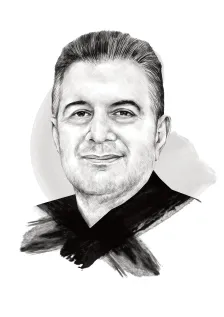In just two weeks, the Middle East and the world stopped talking about the agreed economic corridor, which was supposed to compete with similar plans.
Instead, they have been begging Israel to allow for the creation of a humanitarian corridor to end the bloodshed and let water and food reach about 2 million people – or “human animals,” according to Israeli Defence Minister Yoav Gallant, who pledged to eliminate this population by besieging it and destroying it with the latest missiles.
All this while the world watches the atrocities on screens, satellites, and social media.
It’s hard to come up with words while watching children shaking with fear or buried alive – it’s a Palestinian bloodbath. We’re witnesses to terror — to an ongoing hell.
There are open-air corridors for bombings meant to turn Gaza into ashes and bury its people under debris. No one can feel the horror of war more than those who lived through a war and experienced its explosions, bombings, and repercussions. I’m one of those.
War is no stranger to me
Gaza digs deep into my memory as someone who lived and grew up in Beirut, where I experienced war and its dire consequences. For days, weeks, and months – maybe up until now – my family, friends, and I couldn’t forget the explosion of the first Grad rocket across the street from our home when the so-called Arab Deterrence Force entered West Beirut in 1976.
Even worse was later warfare, including Israel’s 1982 siege and invasion of Beirut, the 2006 war between Israel and Hezbollah, whose leader said later, “If only I knew”, and the semi-nuclear Beirut Port explosion (most probably due to an Israeli raid), which rocked half of the city.




